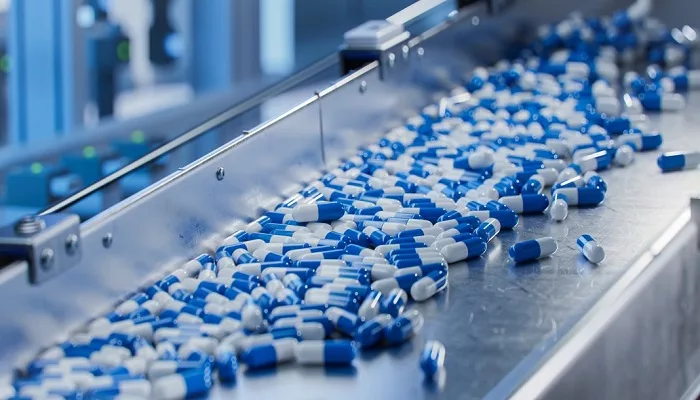The federal government of Nigeria has raised over $1 billion to support indigenous medicine production in Nigeria.
This is coming on the heels of the fact that all health products are heavily dominated by imports with low local manufacturing activities.
The national coordinator of the Presidential “Unlocking Healthcare Value-Chain” Initiative, Dr. Abdu Mukhtar, who disclosed this at the Medic West Africa Conference on Wednesday in Lagos, lamented that 70 per cent of drugs in the country are imported, while 30 per cent are produced locally.
“We import about 32 per cent of pharmaceuticals from India; 31 from Netherlands and 10 per cent from China. On medical devices, Nigeria imports 99 per cent of its medical devices used in the country. For instance, we import about 36 per cent of medical devices from China; Germany (10 per cent), France (nine percent) and India (eight per cent). On vaccines, Nigeria is a GAVI country, hence we don’t manufacture vaccines,” he explained.
He listed supply, demand and enablement environment as challenges that are undermining the industrial development of the life sciences sector in the country. “For instance, on the demand side, consumers have higher preferences and willingness to pay for imported products, while on the supply side, abour 17 per cent of products are substandard or falsified, thereby impacting consumer trust. Also, local manufacturers are increasingly obtaining quality certifications, but this is still considered a challenge as only four players are WHO-GMP certified.
“Enabling environment challenges, include payment terms/rates that make repayment challenging (especially given devaluation and limited access to forex); limited access to technology; manufacturing plant challenges and challenging trade environment which include import/export tariffs (although some have been addressed more recently) and limited access to raw materials, as a result of currency devaluation, among others.
To tackle these challenges, Mukhtar averred that in October 2023, President Bola Tinubu approved the Presidential Initiative for Unlocking the Healthcare Value Chain (PVAC), adding that, “The initiative seeks to unlock billions of dollars of new investment into the nation’s healthcare delivery system. This will be achieved through time-bound and cross-ministerial collaboration to restructure the healthcare ecosystem. The vision is to transform Nigeria into one of the world’s key emerging hubs of health products and technologies manufacturing.”
According to the national coordinator, the Initiative prioritized health security; significant demand and unmet need; ensure feasible technology, ensure economic growth and job creation contribution and ensure quick time-to-impact. “We are prioritizing local production of Active Pharmaceutical Ingredients (APIs) for synthetic small molecule drugs and semi-synthetic small molecule drugs. We are also prioritizing Malaria treatment, among others,” he added.
So far, Mukhtar averred that the Initiative has been able to secure funds from multiple sources, to boost local pharmaceutical companies. “We have already gotten $1 billion from Afrexim Bank, to boost local drugs production in Nigeria. A private company in Brazil has promised to give us $240 million to support our local pharmaceutical companies. We are talking with Bank of Industry, Africa Development Bank and European Investment bank as well.
“On local production of APIs, manufacturers are spending huge amount of foreign exchange to purchase APIs used to formulate drugs. Producing APIs will save the country forex and also boost local production of drugs. We have a very clear plan on how we can start the process,” he disclosed.
Recall that Biovaccines Nigeria Limited (BVNL), a Public- Private Partnership (PPP) between the Federal Government of Nigeria (FGN), and May & Baker Nigeria Plc (MBN), was incorporated in 2005 as the Special Purpose Vehicle to revive vaccines production activity in the country. 19 years after, Nigeria is yet to start local production of vaccines.
The national coordinator, while reacting to our correspondent’s question on local production of vaccines, said, “We are talking to BVNL to see how we can reactivate the partnership. However, we currently have three solid groups that are planning to produce vaccines here in Nigeria. They have already acquired the technology needed for local production of vaccines.”
In the same vein, special adviser to the President on Health, Salma Anas-Ibrahim, said president Bola Tinubu is passionate about how the country can improve and change the trajectory in the health sector.
“Presently, we import about 70 per cent of medical needs, and manufacture only 30 per cent. President Tinubu wants to reverse this trend, in that, local manufacturers can boost production to 70 per cent, while the country imports 30 per cent of its medical needs. This is the only way we can reduce cost and improve access to quality services for the teeming population of Nigeria,” she stated.
In his remarks, the commissioner for Health, Lagos state, Prof. Akin Abayomi, said the ratio of private medical facilities and the public medical facilities, is like 15:1 ratio, adding that the private sector is providing the bulk of healthcare services in the state.
Under the circumstances of a severe movement of medical personnel out of Nigeria and Lagos, Abayomi averred that Nigeria is sitting in a crisis situation. “Presently, government cannot provide the bed space needed in Lagos, hence the need to stimulate the private sector by providing soft loan to help them grow and expand,” he averred.





